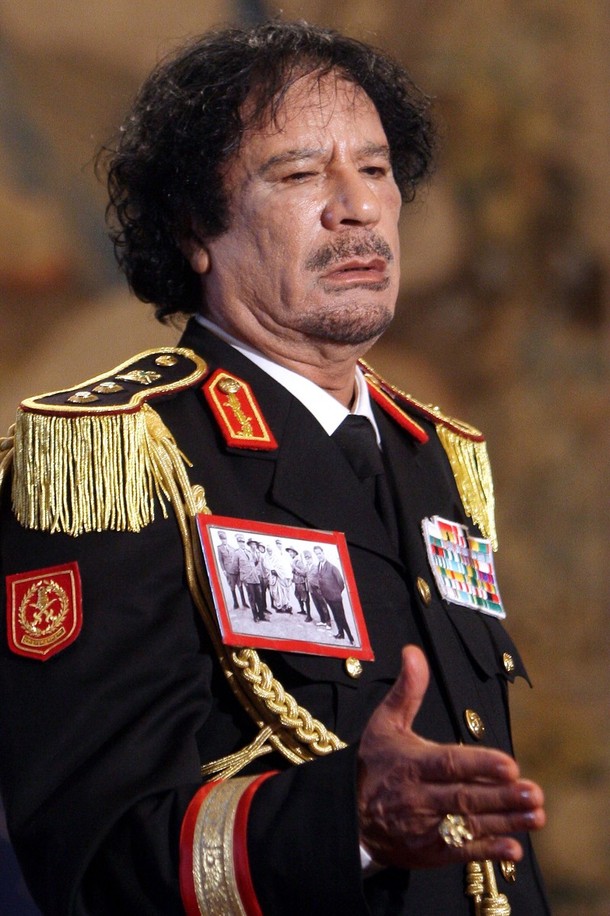Muammar Gaddafi, the former Libyan leader, is a figure shrouded in controversy and intrigue, not only for his political actions but also for his immense wealth. This article will delve deep into the net worth of Muammar Gaddafi, exploring how he amassed his fortune, the economic landscape of Libya during his reign, and the implications of his wealth on his leadership and legacy.
Understanding Gaddafi's net worth requires an examination of various factors, including his investments, assets, and the political climate of Libya. This discussion goes beyond mere numbers; it sheds light on how a leader's wealth can influence their governance and the lives of their citizens. Gaddafi's net worth is not just a reflection of personal wealth; it encapsulates the economic conditions of Libya and the impact of his leadership on the nation.
As we navigate through the complexities of Gaddafi's financial empire, we will analyze credible sources and statistics to provide a comprehensive overview, ensuring that our insights are rooted in trustworthiness and authority. Join us as we uncover the layers behind Muammar Gaddafi’s net worth, a topic that continues to fascinate historians, economists, and political analysts alike.
Table of Contents
- Biography of Muammar Gaddafi
- Early Life and Rise to Power
- How Gaddafi Accumulated Wealth
- Investment Strategies and Assets
- Political Impact of Gaddafi's Wealth
- Gaddafi's Wealth and Global Relations
- Gaddafi's Legacy and Wealth Distribution
- Conclusion
Biography of Muammar Gaddafi
Muammar Gaddafi was born on June 7, 1942, in a Bedouin tent near Sirte, Libya. He was known as a revolutionary leader who ruled Libya from 1969 until his death in 2011. Gaddafi's leadership was characterized by his unique political ideology known as the Third International Theory, which aimed to create a form of governance that combined elements of socialism and Arab nationalism.
| Personal Data | Details |
|---|---|
| Full Name | Muammar Muhammad Abu Minyar al-Gaddafi |
| Date of Birth | June 7, 1942 |
| Date of Death | October 20, 2011 |
| Occupation | Revolutionary Leader, Political Theorist |
| Net Worth | Estimated between $70 billion to $200 billion |
Early Life and Rise to Power
Gaddafi's early life was marked by poverty and hardship. His family lived in a tent, and his father worked as a goat herder. Despite these challenges, Gaddafi excelled academically and eventually joined the military, where he began to cultivate his revolutionary ideas. In 1969, Gaddafi led a successful coup against King Idris I, establishing himself as the de facto ruler of Libya.
How Gaddafi Accumulated Wealth
Gaddafi's wealth primarily came from Libya's vast oil reserves. Since the discovery of oil in the 1950s, Libya became one of the wealthiest nations in Africa, and Gaddafi capitalized on this resource to build his fortune.
- Oil Revenue: Libya's oil exports significantly contributed to Gaddafi's wealth, with revenues reaching over $50 billion annually at times.
- Nationalization of Industries: Gaddafi nationalized key sectors, including oil and gas, allowing the government to control profits.
- Foreign Investments: Gaddafi invested in various sectors globally, including real estate, banking, and telecommunications.
Investment Strategies and Assets
Gaddafi employed various strategies to grow and protect his wealth. His investments were often shrouded in secrecy, but several known assets highlight his financial acumen.
Key Investments
- Real Estate: Gaddafi owned luxurious properties in several countries, including the United States and Europe.
- Sovereign Wealth Fund: The Libyan Investment Authority (LIA) was established to manage the country’s wealth and investments.
- Military and Defense: Gaddafi invested heavily in military equipment and infrastructure, further consolidating power.
Political Impact of Gaddafi's Wealth
Gaddafi's wealth had a profound impact on his political strategy and governance. His financial resources allowed him to maintain control over Libya and assert influence in regional politics.
- Patronage System: Gaddafi used his wealth to build a loyal following among military leaders and tribal leaders.
- Foreign Aid: He provided aid to various African and Arab nations, using his wealth to gain political allies.
- Repression of Dissent: Financial resources enabled Gaddafi to suppress opposition through military and security forces.
Gaddafi's Wealth and Global Relations
Gaddafi's wealth also influenced Libya's international relations. His financial power allowed him to engage with various countries and organizations, often using economic incentives to gain favor.
- Investment in Africa: Gaddafi aimed to unify African nations and used his wealth to fund development projects across the continent.
- Controversial Alliances: His financial support for groups like the IRA and various insurgencies created tensions with Western powers.
- Sanctions and Isolation: As his wealth grew, so did international scrutiny, leading to economic sanctions that impacted Libya's economy.
Gaddafi's Legacy and Wealth Distribution
After Gaddafi's death in 2011, the question of what happened to his vast wealth became significant. Estimates suggest that billions of dollars of Gaddafi's fortune remain hidden or unaccounted for.
- Frozen Assets: Many of Gaddafi's assets were frozen by international governments, complicating efforts for redistribution.
- Impact on Libya: The distribution of wealth post-Gaddafi has been contentious, with ongoing struggles for economic stability in Libya.
- Historical Analysis: Scholars continue to debate how Gaddafi's wealth shaped Libya's socio-political landscape.
Conclusion
Muammar Gaddafi's net worth, estimated between $70 billion to $200 billion, reflects not only his personal wealth but also the economic dynamics of Libya during his reign. His financial strategies, investments, and political maneuvers reveal how wealth can influence governance and international relations. As Libya continues to navigate its post-Gaddafi era, the implications of his wealth remain a critical area of study and discussion.
We encourage readers to share their thoughts on Gaddafi’s legacy and the impact of his wealth on Libya's future. Your comments and insights are valuable to our ongoing exploration of this complex topic.
Thank you for reading! We hope you found this article informative and engaging. Be sure to explore more articles on our site for further insights into historical and contemporary figures.


